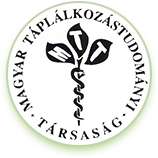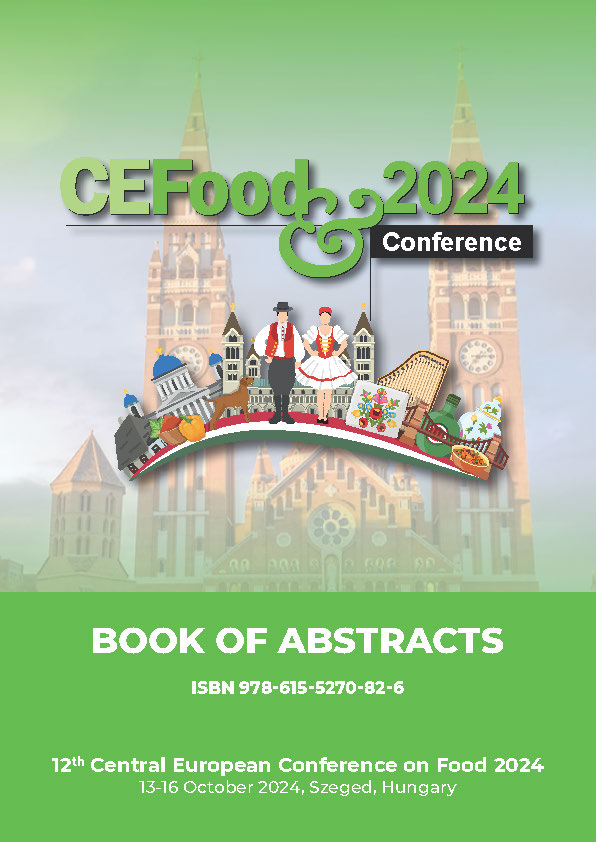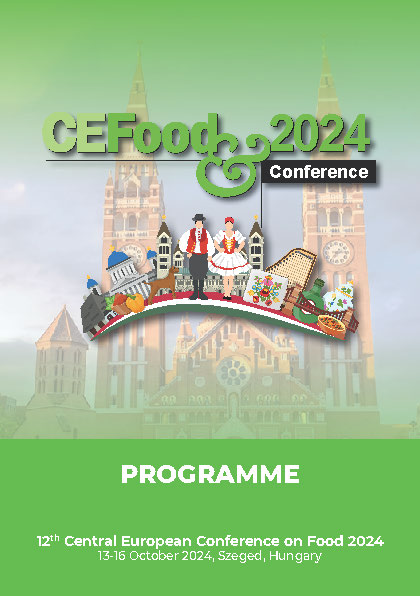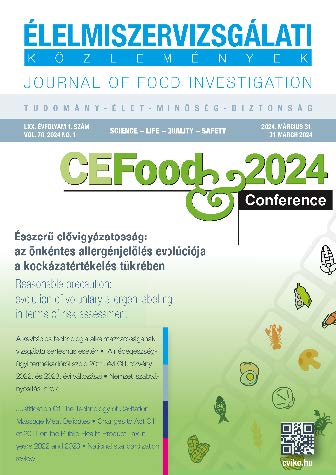Plenary speakers

Prof Diana Bogueva Australia
Diana Bogueva is a social scientist with a PhD from Curtin University, specializing in sustainable food consumption, generational consumer behavior, food and masculinity, alternative proteins, novel food processing technologies, and food sustainability and harmonization. Her work has received several prestigious awards, including at the 24th and 28th Gourmand Awards, often likened to the Oscars for food books, for her edited book "Environmental, Health and Business Opportunities in the New Meat Alternatives Market" (2019) and co-authored book "Food in a Planetary Emergency" (2022). Her recent co-edited book "Nutrition Science, Marketing Nutrition, Health Claims, and Public Policy" (2023) is a finalist at the Association of American Publishers Awards for Professional and Scholarly Excellence (PROSE) Awards. Diana is currently a Research Fellow at the Curtin University Sustainability Policy Institute, where she also teaches the "People and Planet" unit as part of the Masters in Sustainability and Built Environment. She is the President of the Global Harmonization Initiative, headquartered in Vienna, and serves as a Board Member and Chair of the Consumer Perception Working Group.

Dr Lei Cong New Zealand
Dr. Lei Cong is a Senior Lecturer in Agri-food Management and Marketing at Lincoln University, New Zealand. With a PhD in Consumer Food Science from the University of Otago and an M.Eng in Food Science from Shanghai Ocean University, she has an interdisciplinary background that combines social and natural sciences. Dr. Cong's work primarily focuses on exploring consumer insights in sustainable food development, new product innovation, and the promotion of emerging technologies within the food sector. Her expertise lies in studying consumer perceptions of sustainable food materials and technologies, such as the reuse of agricultural by-products, alternative proteins, and functional foods, which help bridge the gap between food innovation and market adoption. By investigating consumer perceptions towards various product attributes, including food safety, cultural influences, communication strategies, and country of origin, her research further supports comprehensive new product development within the food industry. In addition, Dr. Cong cares about how current food regulations influence innovative food development, offering guidance to policymakers on shaping frameworks that better support food innovation and market growth. Dr. Cong has led and contributed to a number of research projects, covering those funded by New Zealand governmental agencies, collaborative projects with industry, and institutionally supported initiatives. By truly understanding the target consumers and markets, Dr Cong’s research contributes to academic community as well as empowers food and beverage providers to address real market needs.

Dr Tibor Cselényi Hungary
Senior Head of Quality Systems and Product Development at Progress Restaurant Chain Ltd. Hungary
Tibor Cselényi obtained a medical degree in Saint Petersburg in 1989. He became board certified in medical microbiology and worked in this field until 1996 at the Saint László Hospital in Budapest. He has been working at Progress Ltd. since February 1996, where he was initially responsible for building food safety systems (HACCP, Food Safety Audits). In addition, he obtained his second degree in 2000 at the Department of Food Chemistry of the University of Horticulture, as a Food Industrial Quality Development Engineer. At the same time, he took over the management of the Quality Systems department, within which he was responsible, among other things, for the development of suppliers and products according to the latest achievements in nutrition science, for the food safety and quality systems operated by the suppliers, and for the safety and quality of raw materials. His important task is the supervision and development of the food safety systems operated in the restaurants, and the integration and development of operating procedures into quality systems. He works in close cooperation with different departments of the company to strengthen the reputation of the brand, such as the Our-Food-Your-Question transparency program. In the field of food law, I am in constant contact with legislators and official control bodies to provide the company with authentic information about legal requirements and compliance.

Prof Levente Czeglédi Hungary
Graduated as an agronomist in 2000 at University of Debrecen, conducted PhD studies in animal science (2005), Dr. habil in animal science (2015) and full professor from 2020. He is the Head of Department of Animal Science (2019-).
He is working as group leader in livestock and poultry research programmes focusing on proteomic approaches to reveal the molecular background of efficient meat and milk production and product quality. He is conducting experiments to reveal the immune booster effects of various compounds of essential oil in ruminants. His research group improved isolation method for primary skeletal muscle cells from chicken and set up trials for 3D muscle cell production.
Lecturer of several subjects in animal production and breeding, molecular biology in animal science for BSc and MSc students and PhD candidates. Currently supervisor of one Hungarian and 6 foreign PhD students.
Head of Habilitation Committee in Agricultural Sciences, University of Debrecen. Secretary of Animal Science Doctoral School, University of Debrecen. Leader of technical efficiency knowledge area at Resilience for Dairy H2020 programme.
Number of publications is 173, 77 of them are papers in scientific journals. The cumulative impact factor of papers is approx. 90, number of Q1/D1 papers is 26.

Prof Dr Eileen Gibney Ireland
Prof Eileen Gibney (BSc, PhD, MSc) has worked in the area of human nutrition since 1997. Graduating with a degree in human nutrition from Ulster University, she then obtained her PhD from the Dunn Nutrition Unit, University of Cambridge in 2001. She went on to complete an MSc in Molecular Medicine (TCD) in 2003. Eileen held post-doctoral positions at the University of Newcastle and Trinity College Dublin, before joining UCD in 2005. Her current research interests lie in the area of personalised nutrition, where she investigates response, including inter-individual variation in response, to nutrition interventions, and develops strategies and innovative technologies for personalised dietary and lifestyle feedback. Eileen has/is a PI on many national and international projects including; Food4me, Food for Health Ireland, Insight and FNS-Cloud. Most recently Eileen has been appointed as Co-Director for a, 35M Euro Co-Centre for Sustainable and Resilient Food Systems. Eileen is Director of the UCD Institute of Food and Health, which harnesses the expertise of researchers across UCD to future-proof global food systems. She is Director of the UCD Institute of Food and Health and a member of the academic staff for the BSc Human Nutrition and other programmes. She has held the positions of Associate Dean of Teaching and Learning & Director of Executive Education with the School of Agriculture and Food Science. Eileen was a founding Director of the Irish Association for Clinical Nutrition and Metabolism (IrSPEN) from 2010 to 2019. She is currently a Trustee of the Nutrition Society of UK and Ireland. She sits on the Public Health Nutrition sub Committee in the Food Safety Authority of Ireland and SafeFoods Advisory Committee.
Dr Maryia Mishyna The Netherlands
Dr. Maryia Mishyna is an Assistant Professor at Food Quality and Design (FQD) group of Wageningen University and Research (the Netherlands). She obtained her PhD degree from Tokyo University of Agriculture and Technology (Japan) followed by an international career working on proteins, including from novel sources, in Israel, China, and Russia. Now she is leading the direction of Future Food Design at FQD. She is currently supervising 5 PhD candidates, BSc and MSc students, and is involved in courses on edible insects and product design. Her main research expertise and interest are in developing principles for the transformation of biomass of novel food sources into food ingredients. She works with edible insects, microalgae, yeast, and fungi, and the primary focus of her research is on techno-functionality, nutritional, and sensory characteristics of food ingredients. She also works on constructing various food matrices with novel food sources and demonstrates how traditional food products can be redesigned using novel food ingredients.

Prof Thierry Regnier South Africa
MSc., 1989; PhD in plant physiology and chemistry, 1994; Associate Professor, 2014; Full Professor, 2016
He is a Full Professor in the Department of Biotechnology and Food Technology, Faculty of Science at the University of Technology in Pretoria, where he has been a faculty’s member since 2007. Prof Regnier is involved in lecturing research methodology, academic writing, food analytic modules for the advanced and postgraduate students. The interest of his research team lies in the area of sustainable food production, phytomedicines, and in particular alternative proteins sources as a way to improve nutrition in Africa. He works in research areas related to cellular agriculture and uses indigenous crops and fungi as the core production. He is the South African Ambassador for the GHI (Global Harmonization Initiative). He has been involved in different ERASMUS programs and has a long collaboration with Reunion Island and is part of the QUALIREG, the Indian Ocean program initiative. He continuously reviews for several journals, serving as a board member of 5 societies nationally and internationally. He is continuously interested in researching the various topics related to food security and safety. His research has also spanned many facets of biotechnology and chemistry.

Dr. Ralph Rühl Germany
Degree in Chemistry/Biochemistry from the Free University of Berlin. PhD with research carried out in Berlin, Germany and partly in France. All diploma and doctoral research since 1993 in the field of vitamin A. Short term postdoc at Queens University in Kingston, Canada in the field of vitamin D, followed by a long term postdoc at the Department of Nutritional Science at the University of Potsdam, Germany in the field of carotenoids / vitamin A. Since 2003 independent research group leader at the Medical Health Centre of the University of Debrecen. Supervisor of 16 Masters / Diploma theses, 7 PhD students, 2 MD student theses, 2006 habilitation in medicine, PI of three major EU projects in the field of food / nutrition and participant of 7 COST actions. Over 110 peer-reviewed publications, cumulative impact factor <500, citations <5000, total H-index currently 41, inventor of three international patent families. Since 2019, founder and CEO of the spin-off / start-up company CISCAREX UG, in Berlin to commercialise research results around vitamin A5, MINA5.de.

Dr. Tamás Szigeti Hungary
Dr. Tamás Szigeti, honorary associate professor at University of Debrecen and University of Szeged Faculty of Engineering, was graduated as chemical agricultural engineer at Keszthely. Post graduated as special engineer for environmental protection at Gödöllő and as special instrumental chemical analytical engineer at Budapest Technical University. Being the editor-in-chief of the Journal of Food Investigation (Élelmiszervizsgálati Közlemények) for 9 years and the head of the Hungarian delegation to the FAO/WHO Codex Alimentarius Committee CCMAS (Codex Committee Measurement, Analysis and Sampling) for 8 years was a substantial part of his work. As his special interests are food and environmental safety and sustainability, he is an invited lecturer at the Faculty of Engineering of the University of Szeged, in the Food Safety Engineering course on separation technology and board member of the Hungarian Association of Environmental Enterprises (HAEE, Hungarian abbreviation: KSZGYSZ). As strategic director at the Bálint Analitika Ltd. accredited testing laboratory, he can draw on his experience from previous jobs like, engineer of a pesticide residue, later occupational health laboratory, leader of an instrumental analytical laboratory at a water work plant, deputy director and chief engineer at governmental county food control institution, and business developing director at Wessling. His mentionable scientific topics: pesticide residues, occupational health expositions, food-chain, environmental safety, transition compounds of food and feed processing, relation between the environment and food-chain safety, and the connection between the sustainability and the base laws of thermodynamics.
Sunday, 13th October 2024
Registration
Opening
Chair CEFood 2024 Conference: Prof. Dr. Diána Bánáti
Chair International Advisory Comm.: Prof. Dr. Éva Gelencsér
Chair Scientific Comm.: Prof. Dr. Livia Simon Sarkadi
Chair Local Organising Comm.: Dr. Balázs Szabó P.
Consumers
Consumer-oriented innovations consumer trends / Consumers’ needs and expectations science and society
Chairs: Prof. Dr. Livia Simon Sarkadi - Dr. Balázs Szabó P.
Prof. Dr. Eileen Gibney, Ireland | Plenary speaker
Challenges and Opportunities to Deliver Healthy and Sustainable Diets
Diána Bánáti
Alternative, innovative and sustainable protein sources
Andrej Ovca
Consumer health risks from raw pet food: Pet owner perceptions and practices
Ana Buda
Consumer acceptance of ice cream with improved nutrient profile
Maja Bensa
To wash or not to wash? A focus groups investigation of Slovenian consumers’ food handling of fruits, vegetables, meat, poultry & fish
Welcome reception
in the Hunguest Hotel Szeged****
Monday, 14th October 2024
Registration desk opens
Explore the frontiers of science – Impact and role of food science and technology in addressing global challenges
Nutrition, genetics, genomics
Food production evolution (novel food processing & technologies)
Smart foods: materials, structure, function(ality)
Engineering Nutrition solutions / Engineering sustainable nutrition solutions
Chairs: Prof. Dr. Diána Bánáti - Prof. Dr. Viktor Nedovic
Prof. Dr. Levente Czeglédi, Hungary | Plenary speaker
Conventional vs. cultured meat production
Francesco Buccioni
Application of aqueous ozone for controlling Diaporthe toxica, a mycotoxin
Ali Haider
Analysis of yogurt peptide profiles and classification of lactic acid bacteria by MALDI-TOF MS
Shubham Mandliya
Enhanced nutritional profile and texturization in low-moisture
Coffee break
Explore the frontiers of science – Impact and role of food science and technology in addressing global challenges
Chairs: Prof. Dr. Éva Gelencsér - Dr. Andrej Ovca
Prof. Dr. Lei Cong, New Zealand | Plenary speaker
Milk alternatives: What drives US consumers’ willingness to try and word-of-mouth?
Zsófia Galambosi
Sniffin' Sticks odour identification subtest for volatile aroma
Hari Niwas Mishra
Food tech innovations for nutrition and health security
Lunch
Explore the frontiers of science – Impact and role of food science and technology in addressing global challenges
Chairs: Dr. Maryia Mishyna - Prof. Dr. László Ferenc Friedrich
Dr. Maryia Mishyna, The Netherlands | Plenary speaker
Reimagining food, or how novel food sources may shape the future of food design
Attila Péter Kiss
Model studies for the assessment of prebiotic nature of selected food components with transformed carbohydrate profiles
Emelin Leandro Rodrigues
Isolation of moulds from Hungarian apples: Emerging contamination risks from mycotoxin producers uncommon in Central Europe
Mercy Barasa
Effect of addition of surfactants on the protein digestibility of pea protein concentrate powders
Coffee break
Poster session I.
Chair: Prof. Dr. Livia Simon Sarkadi
P-01 - Conrado Javier Carrascosa Iruzubieta
Taste panellists’ evaluations in official cheese competitions. Analysis for improvement proposals
P-02 - Anita Najdenkoska
European infrastructure metrofood-ri for safer and healthier foods
P-03 - Albert Gashi
Effect of different treatments on the free amino acid and biogenic amine content of oyster mushrooms
P-04 - Ivona Elez Garofulić
Unlocking the potential of blueberry pomace: optimizing microwave-assisted extraction for the recovery of bioactive compounds
P-05 - Elisaveta Kirova
Comparative analysis of drought tolerance in Stevia, propagated by seed and in vitro with silver salt of peptidomimetic nanofiber
P-06 - Esteban Pérez
Technological innovations in food supplements: implications for public health
P-07 - Gordana Kenđel Jovanović
Association of dietary carbon footprint with planetary health diet index and characteristics of croatian university students
P-08 - Maria Geneva
Evaluation of the enzyme antioxidant activity of ex vitro adapted stevia pretreated with Ag salt peptidomimetic, under the drought
P-09 - Kristijan Hristovski
An evidence of cell wall associated β-galactosidase protein from Limosilactobacillus
P-10 - Mariana Sichanova
Effect of silver nanofibers on non-enzymatic antioxidant defense
P-12 - Ziva Vipotnik
Incorporation of ethanolic extracts from raspberry pomace into meringue cookies; chemical characterization and in vitro digestion
P-13 - Viktória Dobó
Microbiota of dried fruits and the osmotic stress of E. coli
P-14 - Meltem Boylu Kovacs
How are the sensory attributes of meat substituted sausages effected
P-15 - Sandra Pedisić
Optimisation of ultrasound-assisted extraction of phenolic compounds from sea buckthorn berries (Hippophae rhamnoides L.): Characterisation and antioxidant activity
P-16 - Esteban Pérez
Application of Artificial Intelligence in the Food Industry
P-17 - Francesco Buccioni
Pulsed light as a non-thermal technology for food decontamination
P-18 - Jiyeon Chun
Method validation of pyridoxine, pyridoxal, and pyridoxamine analyses and vitamin B6 profiles by rice variety
P-19 - Georgi Kostov
E-learning tools for Food technology and development education (E-Food) – a comprehensive e-learning platform and databases
P-20 - Thi Thanh Nga Ha
Potential of laser light backscattering imaging combined with multivariate methods for evaluating shell egg freshness
Organ concert in the Szegedi Dóm (cathedral)
6720 Szeged, Dóm tér 16.
Hungarian Bites - Hungarian evening with tastings and folk music Conference venue
Tuesday, 15th October 2024
Registration desk opens
Future Food Systems
Advancing science for safer and healthier foods
Food Loss and Waste
Diet change – Climate change is easier to tackle than diet change
Emerging Risks
Chairs: Dr. Erzsébet Nyerges-Illés - Prof. Dr. Levente Czeglédi
Prof. Dr. Thierry Regnier, South Africa | Plenary speaker
Alternative Proteins - Current Status and Future Prospects: where Africa stands
Dr. Tibor Cselényi, Hungary | Plenary speaker
Review of the therapeutic possibilities of carbohydrate restriction – A patient’s perspective
Irena Vovk
Phytonutrients in food samples - how to solve analytical challenges
Chaimae El Hathat
Antagonistic effects of lactic acid bacteria isolated from faeces samples of domestic animal against toxin-producing moulds
Coffee Break
Future Food Systems
Chairs: Dr. Irena Vovk - Prof. Dr. Attila József Kovács
Dr. Szigeti Tamás, Hungary | Plenary speaker
Mineral oil origin pollutants (MOSH/MOAH) in our environment and foods
Firas Alarawi
Enhancing the antioxidant activity of milk protein concentrate hydrolysates via enzymatic bioconversion
Sofia Radja Ziane
Effect of nitrogen supplementation on the fermentation of commercial apple juice with different Bifidobacterium strains
Lunch
Future Food Systems
Chairs: Prof. Dr. Éva Gelencsér - Prof. Dr. Béla Kovács
Dr. Ralph Rühl, Germany | Plenary speaker
Vitamin A5, a newly identified micronutrient for the brain: What are the facts and what is still missing?
Antonello Paparella
Novel antimicrobial strategies for new food trends
Müzeyyen Berkel Kasikci
The effect of intestinal digestion on Gastric-Digested Saliva proteins-polyphenol complexes
Stefan Savo Micevic
Effect of ethanolic pretreatment on the content of reducing sugar and protein on the surface of potatoes
Coffee break
Poster session II.
Chair: Prof. Dr. Éva Gelencsér
P-21 - Dana Tančinová
In vitro effect of essential oils from the family Apiaceae on the growth of Botrytis cinerea strains
P-22 - Kálmán Botond Süli
Effect of glucose and sterilization methods on the antioxidant activity of milk protein concentrate fermented by Lactobacillus acidophilus 150 strain
P-23 - Verica Dragović-Uzelac
Maximizing antioxidants and minimizing waste: ultrasound- assisted extraction of berry leaves
P-24 - Patrícia Erdei-Tombor
Assessment of the antibiotic resistance of bacterial strains isolated from drinking water distribution sysytems
P-25 - Zuzana Barboráková
The occurrence of micromycetes in black soldier fly (Hermetia illucens) larvae after the conversion of different feed
P-26 - Júlia Mazár
Comparative study of different extraction methods as preliminary tests for peppermint instant powder production
P-27 - Zuzana Mašková
Kitchen waste bioconversion using black soldier fly (Hermetia illucens) larvae and their resulting microbial properties
P-28 - Fatma Elzhraa
Typical bacteria in Hungarian dairy products and their antibiotic resistance
P-29 - Fruzsina Bettina Tóth
Possibilities to discriminate between Tenebrio molitor larvae fed with plastic and conventional substrates
P-30 - Jung-Ah Han
Improvement of properties and olfactory attributes of isolated protein from edible insects by roasting
P-31 - Majd Elayan
The effect of adding different proteins on liquid whole egg rheological properties
P-32 - Monika Mrvová
Sensory analysis of selected essential oils
P-33 - Giseli Cristina Da Costa Arruda
Biocontrol activity of isolates from fruits: dog rose (Rosa canina L.), medlar (Mespilus germanica L.), and golden apple (Malus domestica L.).
P-34 - Thi Thanh Nga Ha
Combining pre-processing methods and partial least squares models to assess egg freshness using near-infrared spectroscopy
P-35 - Vesela Shopska
Effect of rosehip, lemongrass, and eucalyptus oils addition on lactic acid wort-based beverages characteristics
P-36 - Vesela Shopska
Development ot new wort-based beverages with citrus essential oil addition
P-37 - Abdelhakam Esmaeil Mohamed Ahmed
The health benefits of baobab fruit pulp Adansonia digitata L.: A Nutrient-Rich Resource
P-38 - Róbert Tupicza
Utilization of enzyme-triggered degradation of plant components in order to fortify oligosaccharide content of prebiotic potential
P-39 - Andrej Ovca
Analysing the implementation of food hygiene in the area of tastigs: Hygienic and regulatory challenges
P-40 - Sofia Milenkova
Comparison of physico-chemical properties of different types of vegetable oil prior and post deep frying
P-41 - Jana Petrová
Coliform bacteria in fresh and gently pasteurised fruit and vegetable juices
P-42 - Eya Yakdhane
Redox potential as a significant parameter for Escherichia coli and Citrobacter freundii differentiation
P-43 - Hala Roumia
Sensory and nutritional attributes of minor cereals
P-44 - Tahra ElObeid
Exploring the antioxidant content of fruits peels: analysis and recommendations for future research on food waste integration
P-45 - Béla Kovács
Investigation of sample preparation methods for microelemental analyses of milk powder
P-46 - Krisztina Varga
Light preference analysis of microalgae
P-47 - Ádám Lőrincz
Comparison of the effect of homogenization and sonication on the texture properties of goat milk yogurt
Conference dinner
in the Hunguest Hotel Szeged****
Wednesday, 16th October 2024
Options & digitalisation, Robotics, Artificial intelligence
Chairs: Dr. Tamás Szigeti -
Prof. Dr. Diana Bogueva, Australia | Plenary speaker
Consumer perceptions of Gen-Z about the future of food
Mojca Korošec
Perception of culinary heritage and innovative food: a case study at European and Mediterranean universities
Georgi Kostov
E-learning tools for Food technology and development education (E-Food) – a new concept in food technology education
Coffee break
Flash presentations
poster with a short, introductory presentation (3-5 slides, maximum 5 minutes to outline the topic of the poster)
Chairs: Prof. Dr. Livia Simon Sarkadi - Dr. Andrej Ovca
Conrado Javier Carrascosa Iruzubieta
Taste panellists’ evaluations in official cheese competitions. Analysis for improvement proposals
Jiyeon Chun
Method validation of pyridoxine, pyridoxal, and pyridoxamine analyses and vitamin B6 profiles by rice variety
Patrícia Erdei-Tombor
Assessment of the antibiotic resistance of bacterial strains isolated from drinking water distribution sysytems
Kristijan Hristovski
An evidence of cell wall associated β-galactosidase protein from Limosilactobacillus
Georgi Kostov
E-learning tools for Food technology and development education (E-Food) – a comprehensive e-learning platform and databases
Krisztina Varga
Light preference analysis of microalgae
Júlia Mazár
Comparative study of different extraction methods as preliminary tests for peppermint instant powder production
Sofia Milenkova
Comparison of physico-chemical properties of different types of vegetable oil prior and post deep frying
Andrej Ovca
Analysing the implementation of food hygiene in the area of tastigs: Hygienic and regulatory challenges
Kálmán Botond Süli
Effect of glucose and sterilization methods on the antioxidant activity of milk protein concentrate fermented by Lactobacillus acidophilus 150 strain
Fruzsina Bettina Tóth
Possibilities to discriminate between Tenebrio molitor larvae fed with plastic and conventional substrates
Ádám Lőrincz
Comparison of the effect of homogenization and sonication on the texture properties of goat milk yogurt
Closing ceremony
Chair EFFoST-CEFood TC: Prof. Dr. Viktor Nedovic
Chair CEFood 2024 Conference: Prof. Dr. Diána Bánáti
Farewell lunch
Overview
| Saturday 12 Oct |
Sunday 13 Oct |
Monday 14 Oct |
Tuesday 15 Oct |
Wednesday 16 Oct |
|
|---|---|---|---|---|---|
| morning | arrival in Szeged | Enjoy the spa & the city / Arrival in Szeged | Plenary Session | Plenary Session | Plenary Session |
| Coffee break | |||||
| a.m. | Plenary Session | Plenary Session | Plenary Session | ||
| Lunch | Lunch | Lunch | |||
| 13:00 | Opening Ceremony and Plenary Session (invited speakers) | Sessions | Sessions | Flash Presentations, Awards, Closing Ceremony | |
| Coffee break | |||||
| p.m. | Sessions | Sessions | Enjoy the spa in the hotel / Return home | ||
| evening | Welcome Reception | Hungarian Show & Tastings | Conference Dinner | ||



